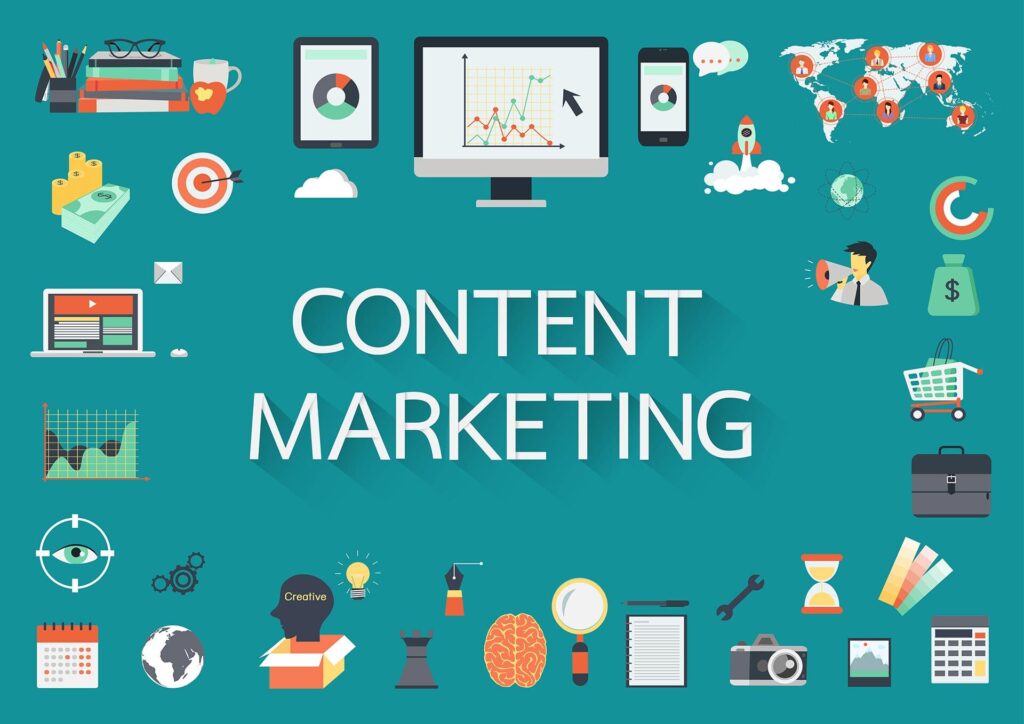With so many businesses operating online, digital marketing has become more important than ever. It provides a powerful opportunity for small businesses to connect with customers, build their brand, and reach a wider audience. In this article, we’ll explore the key elements of digital marketing, including search engine optimization, social media, email marketing, and content marketing, to help you optimize your business online.

Search Engine Optimization (SEO)
As the largest search engine, Google is the primary source of online traffic for many businesses. However, ranking highly in search engine results pages (SERPs) is challenging, and to achieve success, you need to optimize your website for SEO. This involves creating high-quality, keyword-rich content, optimizing your meta tags and titles, building high-quality backlinks, and implementing technical SEO best practices.
Social Media
Social media is an essential aspect of digital marketing, and with billions of users worldwide, the potential for brand exposure and engagement is significant. To optimize your business online, you need to establish a presence on popular platforms like Facebook, Instagram, LinkedIn, and Twitter. Use social media to share content, connect with customers, and build relationships.

Email Marketing
Email marketing is a powerful way to stay in touch with customers, share content, and drive traffic to your website. By collecting email addresses, you can send personalized emails, newsletters, and promotions to your subscribers. Email marketing also allows you to measure and track the success of your campaigns, which is essential for optimizing your business online.
Content Marketing
Content marketing is the creation and distribution of valuable, relevant, and consistent content to attract and retain customers. From blog posts and articles to infographics and videos, content marketing helps build brand awareness and authority, attract search engine traffic, and establish your business as a thought leader in your industry.
In conclusion, digital marketing can be a powerful tool for small businesses looking to optimize their online presence. It’s essential to develop a comprehensive digital marketing strategy that includes search engine optimization, social media, email marketing, and content marketing. By focusing on these key components, you can increase brand awareness, drive traffic, and grow your business online.

How to Optimize Your Content Marketing Strategy
Content Marketing is a form of marketing that involves the creation and distribution of valuable, relevant and consistent content to attract and retain a clearly defined audience—with the objective of driving profitable customer action. Today, with the rise of digital media and influencer marketing, content marketing is one of the most popular and effective ways to reach potential customers and drive sales.
However, with the constant changes in the digital landscape, it becomes vital for businesses to optimize their content marketing strategy. So, in this blog, we will discuss some ways to optimize your content marketing strategy and drive better results.
- Use data to drive your content strategy: Data is the key to understanding your audience’s behavior and preferences. So, it’s essential to use data to drive your content strategy. You can use tools like Google Analytics to track the performance of your content and gather insights into what works and what doesn’t. This will help you create content that resonates with your audience and improve your ROI.
- Focus on creating high-quality content: Quality content is the heart of any successful content marketing strategy. Your content should be relevant, informative, and engaging to attract and retain your audience’s interest. Make sure to invest in creating high-quality content, and don’t compromise on the quality for quantity.
- Optimize your content for search engines: Search engines play a crucial role in driving traffic to your website. So, it’s essential to optimize your content for search engines. Use keywords in your content that your target audience searches for, and include metadata and alt tags in your images and videos. Also, make sure that your website is mobile-friendly and loading speeds are fast.
- Use social media to amplify your content: Social media platforms like Facebook, Instagram, and Twitter can be used to amplify your content reach. Make sure to create engaging and visually appealing content that encourages people to share it with their followers. Also, respond to comments and messages in a timely manner, and use hashtags to reach a wider audience.
- Create a content calendar and stick to it: A content calendar is a roadmap for your content marketing strategy. It helps you plan and schedule your content and ensure a steady flow of content throughout the year. Make sure to include a mix of different types of content, such as blog posts, videos, and infographics, to keep your audience engaged.

